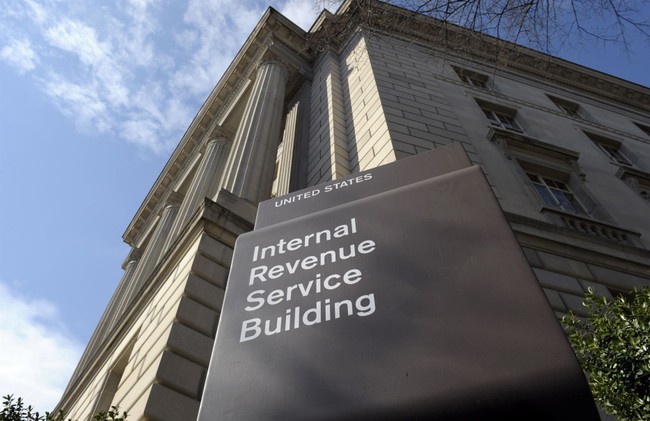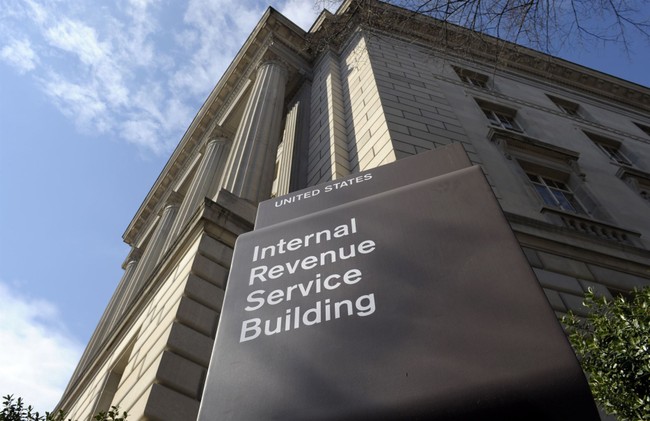
Acting IRS Commissioner Melanie Krause has decided to resign, though she will continue working for at least another month. She is now the 3rd leader of the agency to resign this year.
Melanie Krause is the third leader of the agency to resign this year; Senate-confirmed Commissioner Danny Werfel resigned from his role on Inauguration Day, less than two years into his five-year term.
One month later, acting commissioner Doug O’Donnell, who spent nearly four decades at the IRS, retired amid concerns about the Trump administration’s management of the agency…
Krause is participating in the deferred resignation program — one of several top agency officials to be doing so. Some had already elected to take the “buyout” previously before the memorandum of understanding was reached with DHS.
Krause isn’t talking but it seems pretty clear she is leaving over an agreement reached between the Treasury Department and Homeland Security which will give ICE agents access to IRS data on illegal immigrants.
The acting head of the IRS plans to resign after being bypassed over a new agreement to share the tax data of undocumented immigrants with Homeland Security personnel, according to two people familiar with the situation…
Treasury Secretary Scott Bessent and Homeland Security Secretary Kristi L. Noem signed an agreement Monday allowing the practice, although IRS lawyers had counseled that the deal probably violates privacy law. Krause learned of the deal after representatives from the Treasury Department released it to Fox News, the people said…
Monday’s agreement with DHS would permit immigration enforcement officials to obtain highly protected tax information for people the Trump administration hopes to detain and deport. A redacted copy of the memorandum was filed in the U.S. District Court for Washington, D.C., as part of a lawsuit brought by worker and immigrant advocacy groups seeking to block the data-sharing.
Krause may have other reasons for leaving but the data-sharing is something that activists on the left are arguing is illegal.
Liberal advocacy organizations, immigrant rights groups and Democratic lawmakers have slammed the Trump administration for trying to use IRS data to facilitate deportations.
They say this is a breach of trust because IRS data is supposed to stay confidential, and it will discourage undocumented immigrants from paying taxes in the future. CNN reported last week that some experts believe the uptick in requested tax filing extensions, compared with this time last year, can be attributed in part to resistance among undocumented immigrants.
The argument against sharing data between government agencies has never made sense to me. In this case, it helps to create the current system we have in which immigration laws are treated as irrelevant once people make it past the border, legally or not. People who enter the country illegally should not be able to rely on data privacy to participate in our system as if they were citizens or legal residents. That’s especially true if they are suspects in crimes. At that point, the argument for privacy seems pretty counter-productive to American interests.
Todd Lyons, acting ICE director, told reporters at the Border Security Expo in Phoenix on Tuesday that the agreement will help ICE find people who are collecting benefits they aren’t entitled to and are “kind of hiding in plain sight” using someone else’s identity.
Working with Treasury and other departments is “strictly for the major criminal cases,” Lyons said.
Is it strictly for “major criminal cases?” Reportedly there are indications ICE wants to update their files on as many as 7 million illegal aliens using IRS data.
In a recent video call, DHS officials told IRS officials they needed access to their data to help them locate up to 7 million suspected undocumented immigrants – an eye-popping figure that “shocked” IRS employees, according to a source with knowledge of the meeting.
The DHS officials said they had names and addresses for the suspected undocumented immigrants, but they feared the information is outdated and inaccurate.
The source with knowledge also described moments of frustration among the DHS officials who at times appeared stumped when they learned that the IRS would only be able to confirm if they had a match in their system, and would not be allowed to provide new information like an updated or more accurate home address.
“They were not happy, and they were perplexed by the specificity of the law,” the source said.
So far the IRS hasn’t turned over any data to DHS but the new agreement could change that. This is going to be yet another effort that will wind up in court. In fact, immigrant rights groups filed a lawsuit last month to prevent the IRS from sharing data. There’s no nationwide TRO in place on this yet, but as we’ve seen many times already, that could still happen.









